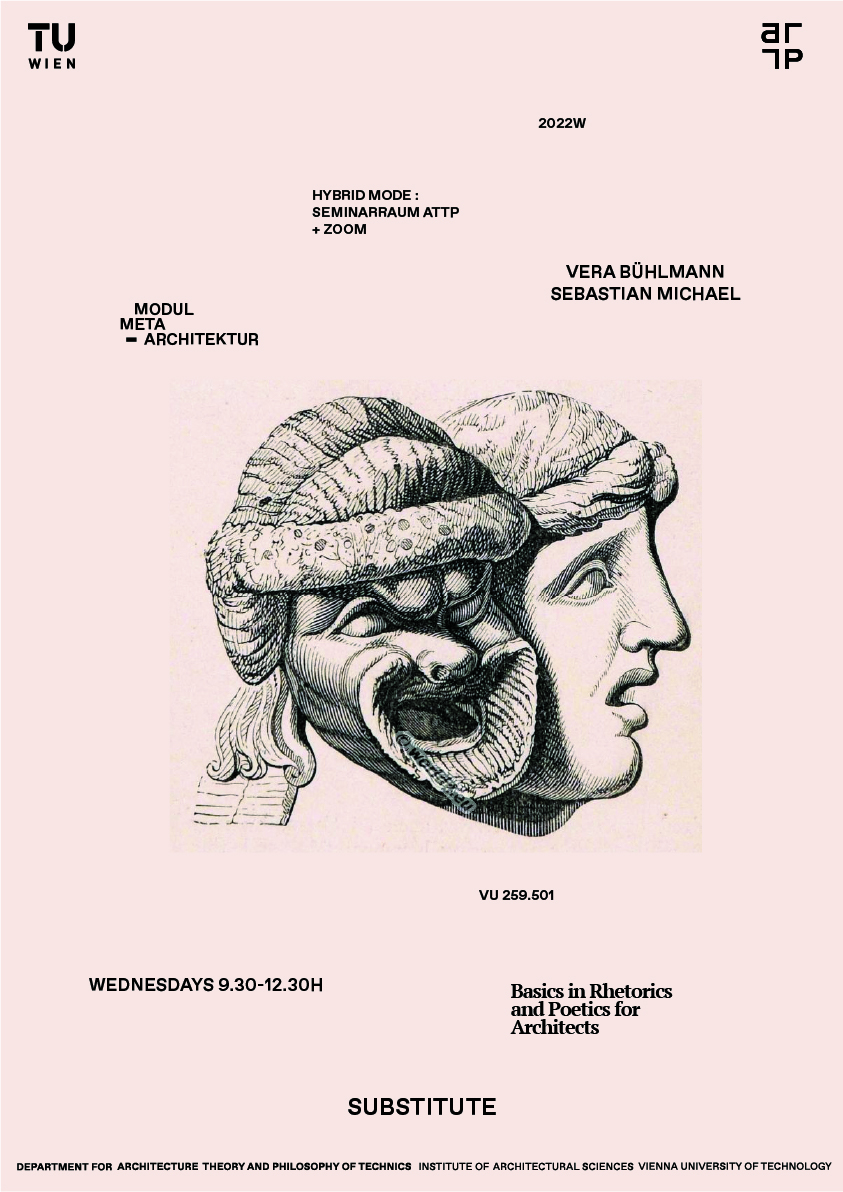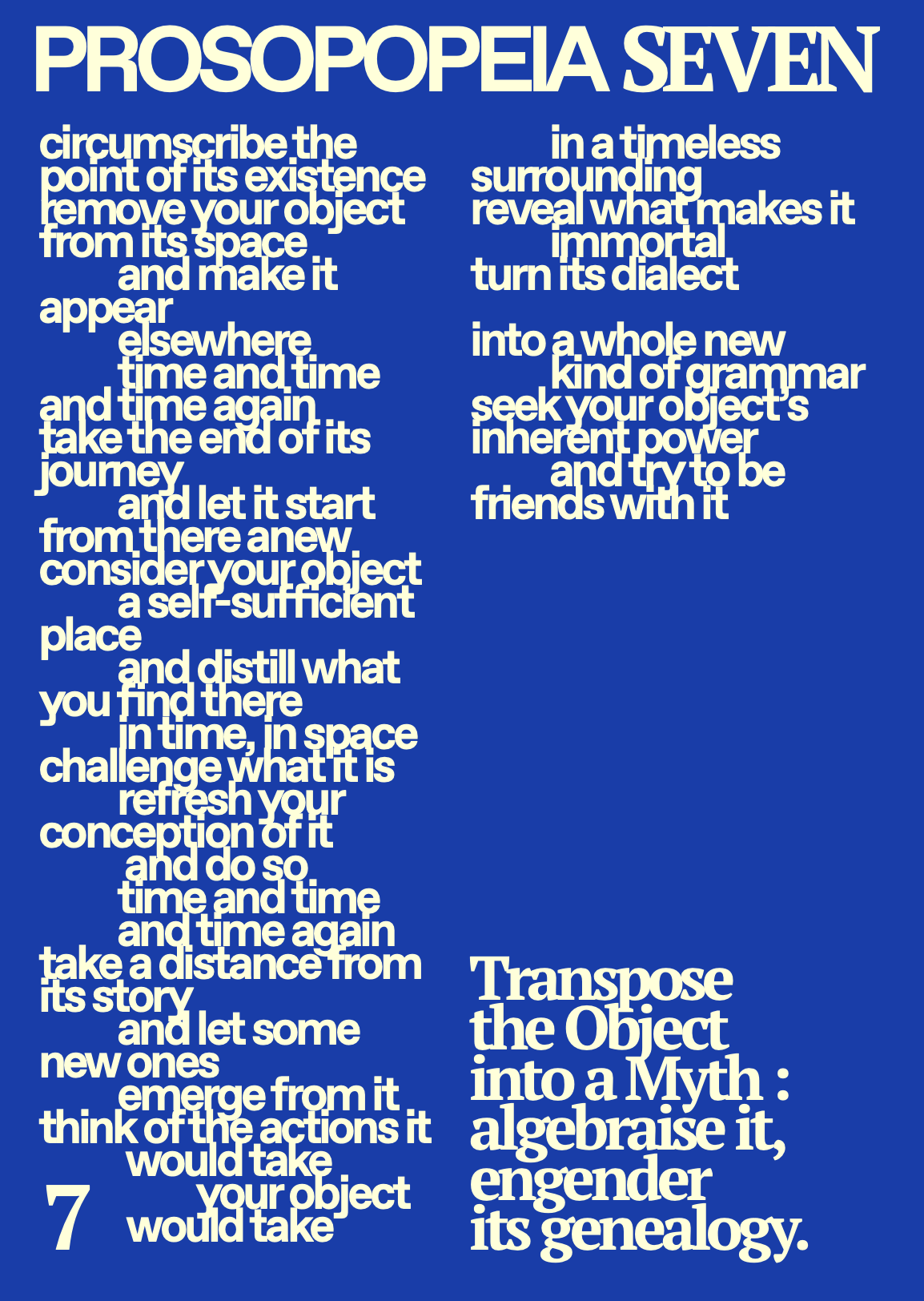After successful completion of the course, students are able to deal with language and words rhetorically and poetically. They are equipped with a basic vocabulary of ideas and concepts in rhetoric and poetics, and have gained practical experience of how to use them. Furthermore, students have been introduced to exercises form Creative Writing that help to loosen a 'writer's blockage'.

Basics in Rhetorics and Poetics for Architects
The principles of both rhetoric and poetics revolve – albeit in different ways – around how to express yourself skilfully, precisely, even masterfully. In poetics for example by establishing a unity of place, time and action; in rhetoric for example by demonstrating a case by means of ‘common topics’ or ‘commonplaces’, by recognising and utilising kairos (seizing and fitting the moment), and by a process of stasis, meaning the critical assessment and questioning of an argument and thus bringing an unsettled state into one of balanced stability.
Our interest will be in how these terms are treated in the traditions of rhetoric and poetics as separate entities that play together in ‘a plot’ of which we can think architectonically. The principled treatment of these entities (place, time, and action) are not only central to every text, but also to architecture across all scales (for example place making through identification of site, task, and context of a project; time with regard to identifying a style, or a building’s classicality or modernity; and action with regard to the great importance of ‘agency’ at work in the planning and building of our environments).
This course will be co-taught by Sebastian Michael, a professional writer of plays, novels, poetry, as well as popular science prose, and Vera Bühlmann, professor for architecture theory and philosophy of technics. There will be weekly lectures combined with practical exercises along the classical canon of "progymnasmata" exercises – adapted to our contemporary interests.









The course will consist of lectures as well as exercises: (1) Lectures on the principles of rhetoric and poetics – the students will be provided with a basic vocabulary of concept as well as (2) exercises to acquire proficiency in articulation, which all students will be expected to participate in. There will be writing tasks for every week.
The semester will be structured in eleven meetings, ending before the Christmas break. Attending the sessions and participating in the exercises is mandatory. The students are expected to submit weekly exercises via TUWEL, and to complete the course with a longer piece of writing (due in January before the Semester ending): students will be expected to draw together all the skills from the weekly exercises, and compose a rhetorical 'oration'.